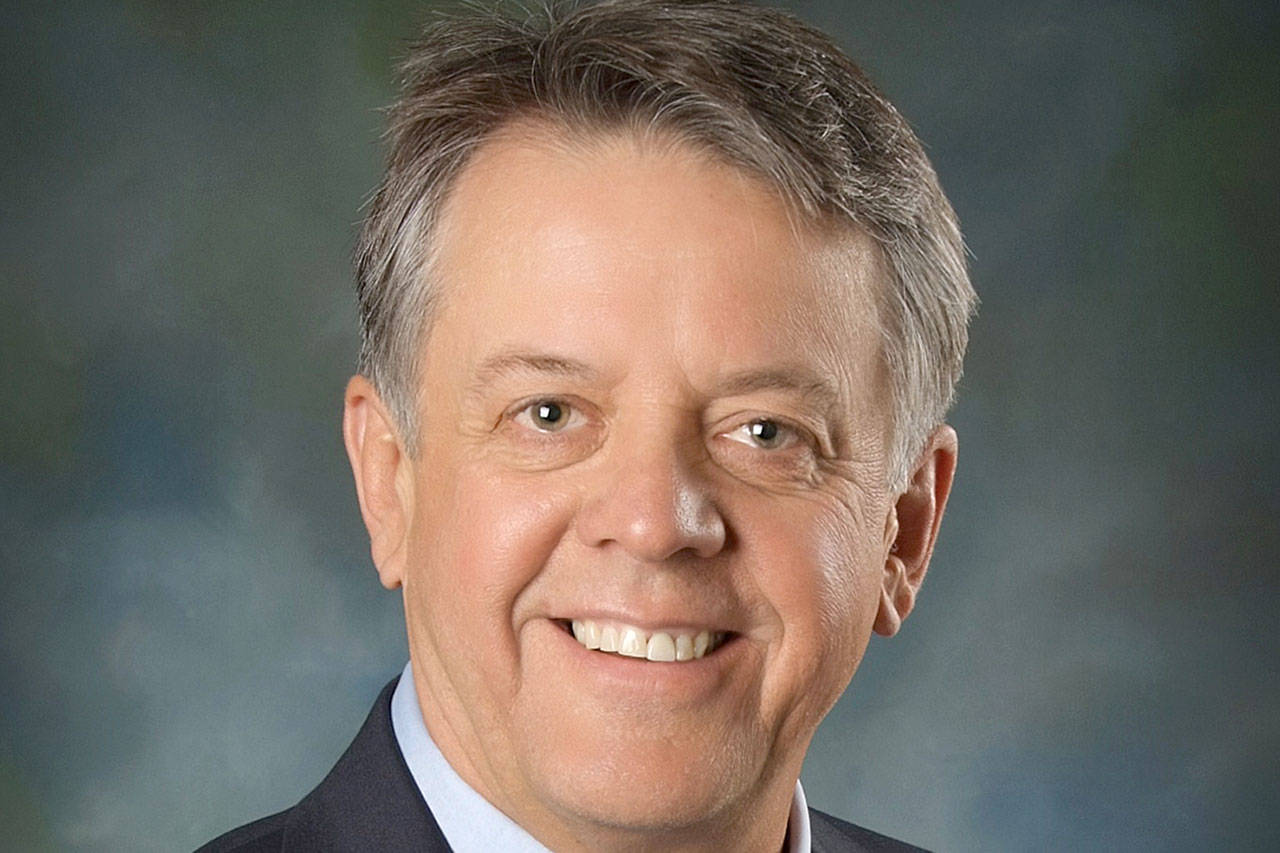A hearing at the Senate Ways and Means committee in January regarding the Department of Fish and Wildlife’s proposed budget — including significant raises to most fishing and hunting licenses — led to some harsh words for the department’s director Jim Unsworth from Ways and Means committee chairman Sen. John Braun, R-Centralia, and later, criticism from another Republican lawmaker calling into question Unsworth’s ability to lead the department.
Unsworth came into the hearing claiming to have broad public support for his budget and the license fees it included. Braun strongly disagreed after listening to Unsworth’s testimony, going so far as to accuse Unsworth of misleading the committee.
“These are the comments that I understand came from your online survey, and I can’t find a single positive comment in them,” said Braun. “In addition to that, this is a section of letters you say are in support of your proposal but if you read the letters many of them raise serious questions about your proposal.”
It didn’t end there. Braun continued:
“I take real issue with you showing up in our committee claiming you have broad public support when your own survey and the letters you sent us don’t show broad public support. So I understand you have a funding issue and a big challenge to take on, and I’m happy to help you with that, but I will not accept you showing up and misleading this committee. Thank you for your service and have a good day, sir.”
When the Senate budget was released in late March, Sen. Kirk Pearson, R-Monroe, chairman of the Senate Natural Resources and Parks Committee, released a statement March 21 to address the budget as it related to Fish and Wildlife, going so far as to call the department “an agency in crisis” and saying the Department of Fish and Wildlife has “a leadership problem.”
The release read, “The release of the Senate budget proposal today marks the beginning of a positive turnaround of the troubled Department of Fish and Wildlife. The budget provides safeguards for crucial agency functions, such as hatcheries, while initiating the rebuilding of an agency in crisis.”
Pearson noted the agency’s proposal to address budget shortfalls by increasing the cost of fishing and hunting licenses, and his opposition to it.
“The agency wanted to correct this by initiating a hefty increase in hunting and fishing license fees without the promise for more opportunities,” said Pearson, adding the problem with the department “is not a money problem, it’s a leadership problem.”
The Senate budget provides $5 million from the general fund to protect hatcheries and core agency functions while bringing in outside performance and management support, according to the release.
“It’s important that we provide stability to the agency while we begin a much-needed overhaul that will help protect and grow the state’s hunting and fishing opportunities,” said Pearson. “This budget keeps the core of the agency in place while we correct the past problems that placed the agency in this situation and help them get on stronger footing.”
The budget proposal also provides funding for an outside consultant to identify and fix management and organizational issues while running a zero-based budget exercise to address ongoing budget issues.
“This budget reflects the needs of an agency in crisis,” said Pearson. “Dwindling fish populations, diseased and scattered wildlife and animal conflict problems have set back the Department of Fish and Wildlife’s mission over the past few years. By giving them the tools they need to be successful, we can protect and grow hunting and fishing opportunities both now and in the future.”
Unsworth responded in an email widely distributed throughout the agency the following day, addressing Bruan’s budget proposal and comments made by Pearson.
“Senator Braun’s proposal contains a few positive elements, including a $5 million one-time increase and $1.5 million for wildlife conflict transformation, both from the State General Fund. But overall, it would not enable us to continue current service levels,” he wrote. “It’s important for us to recognize that this proposal represents just one early step in the budget development process. While it presents significant challenges, we are used to responding to budget proposals that require revision.”
He went on to say he found Pearson’s comments “in some ways more concerning.”
“Without citing any evidence, it describes (this department) as an ‘agency in crisis.’ It calls into question our performance and claims that we have proposed large license fee increases ‘without the promise for more opportunities.’
Unsworth said in the memo that all hunting and fishing license fee proposals “were developed to ensure the department has the funding needed to maintain and expand commercial and recreational opportunities in the future. It is simply wrong to suggest otherwise.”
The director said the Department of Fish and Wildlife has made “remarkable strides” in recovering from deep budget cuts dating back to the Great Recession, telling staff that their efforts have led to “performance improvements in every area of our operation.”
He went on to praise the people within their departments, citing their commitment to the “people and resources of this state,” and the contributions their efforts make toward the economy of the state, the health of communities and “our identity as Washingtonians.”
He continued, “Of course there’s always room for improvement, which is one of the primary reasons we initiated the Wild Future initiative. And some of the one-time funding proposed by Senator Braun might make it possible for us to conduct targeted performance reviews, such as an efficiency evaluation of our hatchery operations.”
Unsworth summed up the memo by again defending his department and the work they do.
“We know the state faces a very difficult budget challenge, and that some spending cuts are quite possible,” he wrote. “But it’s not right to justify budget cuts by criticizing the people who deliver important services.”


